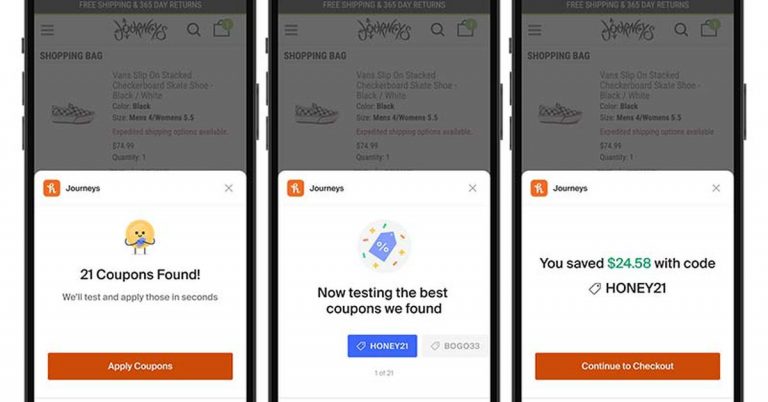The European Commission has approved NVIDIA’s proposed acquisition of Run:ai, an Israel-based provider of a compute management platform. It is pushing for Apple to enhance interoperability between iOS and third-party devices.
NVIDIA supplies GPUs for data centres, while Run:ai supplies GPU orchestration software. These products must be compatible, and it was thought that the acquisition could result in the companies intentionally hampering their respective products’ compatibility with competitors.
However, the Commission’s investigation found that NVIDIA could not prevent its GPUs from being compatible with the orchestration software of Run:ai’s competitors due to the widespread nature of tools that ensure such compatibility. Furthermore, Run:ai lacks a dominant position in the GPU orchestration software market, as many equivalent alternatives are available or can be built in-house. This led to the deal being approved unconditionally.
NVIDIA’s purchase of Run:ai intended to improve customer satisfaction, efficiency
Big Tech firms are rapidly investing in young AI startups to gain early control and capitalise on the AI boom. Notably, this can be seen through partnerships such as Microsoft and OpenAI, NVIDIA and Inflection AI, and Google and Anthropic.
However, such collaborations can lead to market dominance, making it more difficult for other independent companies to get funding, attract talent, or compete with the advanced technology and reach of the big players. Innovation within AI specifically depends only on a few elements, with GPUs being one of them.
NVIDIA announced its plans to buy Run:ai in April “to help customers make more efficient use of their AI computing resources.” Run:ai’s platform dynamically allocates GPU resources, whether on-premises, in public clouds, or at the edge, allowing companies to get the most out of their hardware and reduce operational costs.
“Together with Run:ai, NVIDIA will enable customers to have a single fabric that accesses GPU solutions,” NVIDIA said in the acquisition announcement.
The two companies have been working together since about 2020. The deal is worth $700 million, according to TechCrunch, and NVIDIA does not currently have plans to change Run:ai’s business model.
Initially, Italy flagged the deal to the E.U. Merger Regulation, which allows for mergers that don’t have an E.U. dimension but could impact trade and competition within the region. While it did not meet the E.U.’s or Italy’s turnover thresholds, at the time, the Italian competition authority determined that the acquisition either posed concrete risks to competition or met other conditions outlined in the Italian Competition Act.
SEE: UK Probes Alphabet’s Partnership With Anthropic Over Competition Concerns
EU continues to hold Apple accountable, proposing interoperability measures for Digital Markets Act compliance
On Dec. 19, the Commission proposed measures to enhance interoperability between Apple’s iOS and iPadOS and third-party devices, which is required under the DMA. Apple has expressed concerns that granting access to its operating system could compromise user privacy.
The Commission’s recommended measures include improving compatibility between iOS and features of devices such as smartwatches and earbuds. These features include notifications, automatic Wi-Fi connections, AirPlay, AirDrop, and automatic Bluetooth audio switching.
The authority also suggests that Apple make its process for developers to request interoperability within iOS and iPadOS features more transparent and predictable. This involves providing clear information about its internal features and timely status updates for requests.
Apple says measures will impact privacy, security
In response to the measures, Apple published a document outlining how granting access to its technology stack and, thus, user data could compromise privacy and security. It also highlights how Meta Platforms has made 15 requests for access to Apple’s software tools, including messages, iPhone mirroring, and connectivity to all a user’s Apple devices, under the DMA.
“If Apple were to have to grant all of these requests, Facebook, Instagram, and WhatsApp could enable Meta to read on a users device all of their messages and emails, see every phone call they make or receive, track every app that they use, scan all of their photos, look at their files and calendar events, log all of their passwords, and more,” Apple wrote. “This is data that Apple itself has chosen not to access in order to provide the strongest possible protection to users.”
Apple also highlighted that Meta “has been fined by regulators time and again for privacy violations.” In 2019, Meta agreed to pay a $5 billion penalty to the U.S. Federal Trade Commission to settle an investigation into privacy, including the unauthorised sharing of user data with third parties. It was also fined €1.2 billion in 2023 by the Irish Data Protection Commission for violating GDPR.
SEE: Meta Offers Less Personalised Ads for EU Users to Appease Regulators
However, Meta has not taken this lying down. Meta Communications Director Andy Stone posted on X: “Here’s what Apple is actually saying: they don’t believe in interoperability. In fact, every time Apple is called out for anticompetitive behavior, they defend themselves on privacy grounds that have no basis in reality.”
The Commission is now collecting feedback on its proposed measures, which may impact the final set that is put to Apple.
Apple’s ongoing tussle with the Digital Markets Act
The DMA has been a point of contention for Apple since it was enacted in September 2022. On Nov. 4, the Commission announced its investigation into whether Apple’s iPadOS operating system complies with the legislation.
The DMA’s requirements apply only to the 24 core platform services offered by the seven “gatekeeper” companies, including Alphabet, Amazon, Apple, Booking, ByteDance, Meta, and Microsoft. The gatekeepers have a major economic impact in the E.U. and more than 45 million monthly users in the region or more than 10,000 yearly business users for at least three years.
iPadOS, along with the App Store, Safari, and iOS, is on the list of core platform services as it provides “an important gateway for business users to reach end users.” However, the platforms must comply with the DMA’s requirements. iPadOS users should be able to choose their default web browser, use third-party app stores, and explore features with non-Apple accessories such as headphones and smartpens, among other conditions.
Interestingly, macOS is not deemed a core platform service, meaning European Mac owners may be able to access Apple Intelligence when it’s released. Apple has asserted that it will not roll out its AI offering in the E.U. due to “regulatory uncertainties” brought about by the DMA. However, an exception could be made as macOS does not have to comply.
On Nov. 1, Apple published a report explaining the measures it has implemented in iPadOS to comply with the DMA. The Commission will now assess this to see if the measures are sufficient. However, Apple could be fined up to 10% of its worldwide turnover if found to be in violation.
SEE: Apple Must Pay Back €13 Billion in Unpaid Taxes to Ireland, E.U. Court Rules
So far, the Cupertino giant has not relented to the legislation. In January, it said that accessing third-party apps on Apple devices presents security risks, including “malware, fraud and scams, illicit and harmful content.”
The European Commission launched three other investigations into Apple’s DMA compliance last year.
In June, the company was charged for violating the DMA for several reasons, including not making it easy for developers to steer their customers to purchase options outside the app that do not financially benefit Apple. It also launched a non-compliance investigation into whether Apple discourages developers from hosting their iOS apps on third-party platforms.
In August, Apple announced it would allow E.U. users to delete pre-installed apps on iOS 18 to comply with the DMA. It also clarified the “browser choice screen” and expanded several default apps that can be replaced with third-party versions.


























+ There are no comments
Add yours